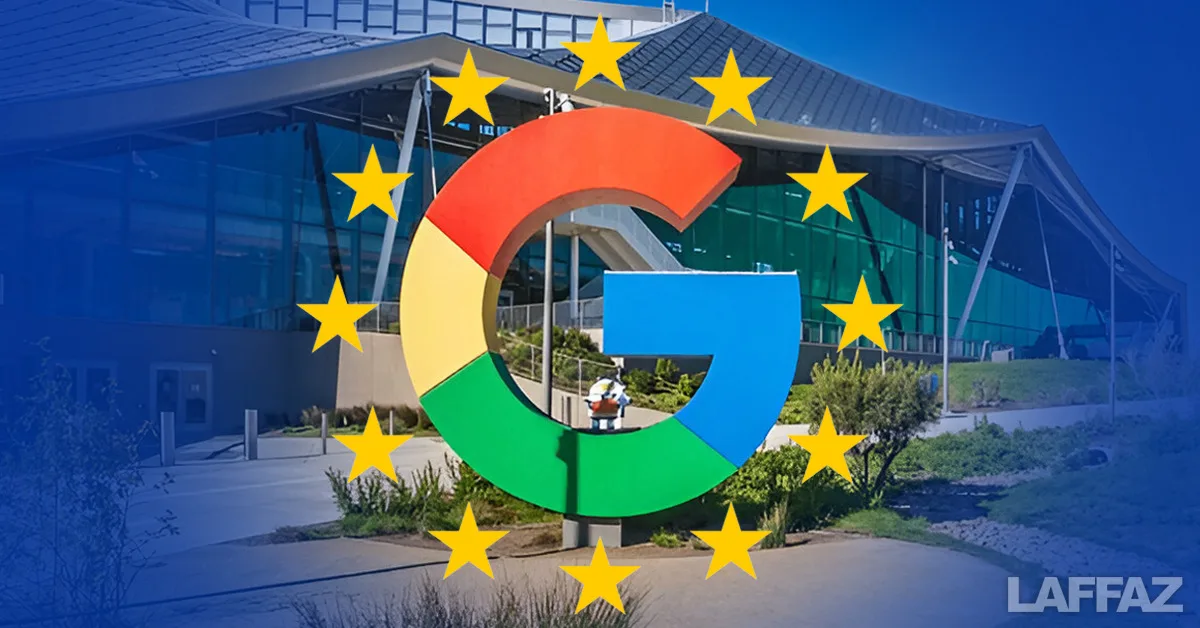- The European Commission fined Google €2.95 billion for favouring its own adtech services (AdX, publisher ad server, and ad-buying tools)
- Former U.S. president Donald Trump denounced the fine as “unfair” and signalled possible trade retaliation under Section 301.
- Google says it will appeal and warned the decision could hurt European publishers; regulators have given the company 60 days to propose compliance measures.
The European Commission, on Friday, imposed a €2.95 billion ($3.45bn) antitrust fine on Google for abusing its dominant position in the online advertising technology (adtech) market, saying the company favoured its own ad exchange and related services to the detriment of rivals and publishers. Regulators ordered Google to stop the practices and gave the company 60 days to explain how it will comply, with stronger remedies, including possible divestiture, on the table if its plan is insufficient.
The Commission’s decision follows an investigation opened in 2021 after a complaint from the European Publishers Council. Regulators said Google had reinforced the central role of its ad exchange “AdX” by tying it to other parts of its ad stack, resulting in higher fees and worse outcomes for competing providers and many online publishers. The probe found the conduct dated back to 2014.
U.S. reaction: threat of tariffs and Section 301
The ruling immediately drew sharp criticism from U.S. President Donald Trump as he called the action “unfair” and “discriminatory” in a post on Truth Social and told reporters he would “be speaking to the European Union.” He warned his administration would consider initiating a Section 301 investigation under the Trade Act of 1974, a move that could lead to tariffs or other trade countermeasures against the EU.
In Washington, trade analysts said the episode ramps up already tense transatlantic political pressure over the regulation of big technology firms, and that a U.S. trade probe would mark an escalation from rhetorical complaints to concrete retaliation.
Google to appeal; warns of harm to European businesses
Google said it will challenge the Commission’s decision in court. In a statement, Lee-Anne Mulholland, vice-president and global head of regulatory affairs, said: “The European Commission’s decision about our ad tech services is wrong and we will appeal. It imposes an unjustified fine and requires changes that will hurt thousands of European businesses by making it harder for them to make money.” The company also argued there are “more alternatives to our services than ever before.”
Industry groups and some publishers have pushed back that a fine alone will not cure structural market imbalances. The European Publishers Council, which brought the complaint, complained that regulators stopped short of ordering a breakup, while campaigners and academic critics called for stronger, structural remedies. “A fine will not fix Google’s abuse of its adtech,” said the Council’s executive director, Angela Mills Wade. Cori Crider, a senior fellow at the Future of Tech Institute, urged a breakup as the only definitive fix.
Where this fits into broader antitrust action
The EU’s sanctions are the latest in a string of major penalties and investigations into Google’s market conduct. The company previously faced multibillion-euro fines in other EU antitrust cases and is also fighting separate enforcement actions and litigation in the United States, Canada, and the UK. In the U.S., Google faces remedies hearings in a Department of Justice case over adtech monopolisation, a trial on remedies is scheduled in September that will determine what, if any, structural steps a U.S. court will require.
The Commission reiterated that it would first assess Google’s proposed compliance plan but warned the company that failure to resolve the “inherent conflicts of interest” in its adtech stack could prompt “strong remedies,” including partial divestment of services. Regulators said the aim is to restore fair competition in a market they estimate at tens of billions of euros.
What publishers and advertisers should watch next?
- Google’s 60-day compliance response: The company must explain how it will stop self-preferencing; regulators will assess whether behavioural fixes suffice or a structural remedy is needed.
- Potential ripple effects in the U.S. case: Remedies set by a U.S. court earlier this month could complement, diverge from, or complicate EU enforcement.
- Trade relations: Any U.S. Section 301 move would raise the stakes for EU-U.S. trade relations and could force policy choices beyond competition law.
Editor’s Note
The Commission’s decision is significant but not final. Google said that it will appeal, while the EU says it will review the company’s proposed fixes before deciding on stronger measures. For publishers, adtech vendors, and advertisers, the immediate outcome will depend on whether behavioural changes suffice to reopen competition, or whether regulators opt for divestiture to reshape an industry many critics say is too interlinked to fix with fines alone.






